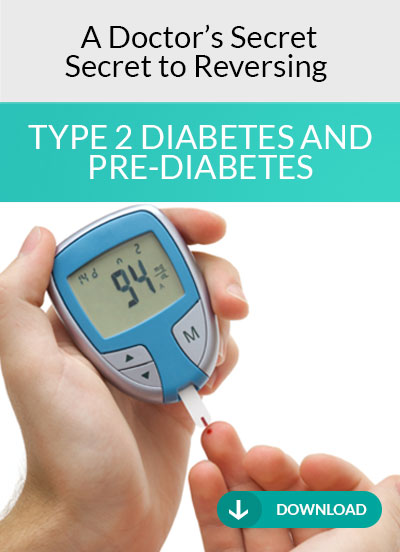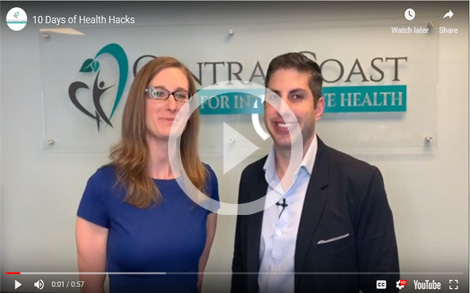8 Possible Reasons Why You’re Always Tired
The number one complaint I hear from my patients on their first visit is about their fatigue. Their number one goal is to have more energy. In order to help them accomplish that goal, I must first do some detective work to find out why they’re constantly tired.
Although each patient is an individual, I find there are eight common reasons why most of them are dragging themselves through the day. In this blog post, I’ll discuss those common reasons and offer suggestions on how to get more energy.
- Emotional and Mental Stress
Chronic stress wreaks havoc on the hypothalamic-pituitary-adrenal (HPA) axis, leading to adrenal fatigue, a condition where the adrenal glands stop making enough of the stress hormone cortisol, leaving the body in a depleted state. When you’re stressed, you’re also probably not sleeping your best, which can make fatigue even worse.
We live in a busy world where most people have too much to do and too little time to do it. Constant deadlines and other stressors leave some people stuck in a constant fight-or-flight mode dominated by the sympathetic nervous system. They’re unable to completely calm down.
What To Do About It: The first step is to visit a functional medicine provider to have your cortisol levels tested. A functional medicine provider can also help heal your adrenal glands by suggesting beneficial dietary supplements that can soothe stress.
Taking care of yourself is also important. I recently saw a patient whose energy levels had tanked and she battled fatigue. She went on vacation and came back feeling like a whole new person. Her energy levels rebounded after she spent time in fresh air and sunlight and away from her usual stress. The only thing that changed was that she gave herself a little TLC.
Finally, for people stuck in fight or flight mode, stimulating the parasympathetic nervous system is important. This counteracts the stimulating effects of the sympathetic nervous system. One of my stressed patients accomplished this by going for a chiropractic adjustment, which got his nervous system back on line.
- Nutritional Deficiencies
Nutrient deficiencies can occur because of a poor diet or poor absorption, or because stress depletes your nutrient levels. For example, stress can lead to lower levels of B vitamins or vitamin C. Iron-deficiency anemia is another good example of a common nutrient deficiency that can lead to fatigue.
What To Do About It: In addition to eating a diet rich in fruit and vegetables, you can visit a functional medicine provider to get tested for nutrient deficiencies. This type of doctor can also address the causes of poor absorption such as celiac disease, inflammatory bowel disease, or gastrointestinal dysbiosis (an overgrowth of potentially harmful bacteria or fungi in the gut).
- Blood Sugar Issues
This is a super common issue among my autoimmune patients. More often than not it’s low blood sugar that’s the culprit behind feeling tired. Insulin resistance is another common problem. This is when the body ignores insulin’s blood-sugar-lowering signals, leading to high glucose levels. Feeling fatigued after a meal or experiencing afternoon slumps in energy are red flags that insulin resistance might be to blame.
What to do about it: Work with a functional medicine provider to have your blood sugar and insulin levels tested. Avoiding sugar and eating smaller meals with healthy protein and fat throughout the day may help.
- Thyroid Problems
If you’re tired all the time, you might have a thyroid problem. In people with thyroid issues, usually the problem is hypothyroidism – low thyroid function. These patients have often already been tested for TSH and T4, but those measurements don’t paint the full picture.
What to do about it: Testing for TSH, T4, and T3 levels gives a more complete understanding of what’s going on. Many patients are taking Synthroid, a thyroid medication that delivers T4. In this case we give patients glandular supplements that have T3 in them either temporarily or over the long-term. T3 is the active thyroid hormone and is often more beneficial than T4.
- Weakened Mitochondria
The mitochondria are the powerhouses of our cells. They’re responsible for producing ATP, the fuel that runs our cells. If they’re not working properly, your body won’t produce enough energy and you’ll feel fatigued. Many things can cause mitochondrial dysfunction, including aging, toxin exposure, poor nutrition, and mental stress.
What to do about it: Consult with a functional medicine provider to find out which dietary supplements can rejuvenate the mitochondria. Avoiding toxins and reducing mental stress can also help.
- Chronic Pain and Illness
Chronic health problems will wear you down, both mentally and physically. People suffering a long-term illness are often frustrated and feel lost and hopeless. When you don’t feel in control of what’s happening to your body or mind, it will definitely take an emotional toll. Because of this, you don’t feel like doing the things you know you should be doing like exercising and eating well.
What to do about it: Build your positive support team, as I describe in this blog. Try to get moving, even a little bit. Consult with a functional medicine practitioner to find ways to boost your energy levels such as supporting a healthy inflammatory response with supplements such as cannabidiol (CBD).
- Not Moving Around Enough
It seems counterintuitive. If you’re in pain or have a chronic illness, the last thing you want to do is exercise. However, if you lead a sedentary lifestyle your circulation is going to suffer and your tissues won’t receive enough oxygen. You’ll very likely gain weight, which only makes you more sluggish. Your body will feel tired and your brain foggy. Rheumatic patients in particular feel much better the more they move around, as the movement keeps the inflammation flushed out of the joints.
What to do about it: Don’t be overwhelmed by the thought of exercise. Start with baby steps: walk to the end of your driveway and back. As time goes on you can increase the distance.
- Toxins
This can vary from person to person, but toxins that can cause symptoms in many people include mold, heavy metals, and pesticides. Anything that a person’s body is not reacting to well is putting extra demand on that person and is technically toxic. Pollen can be toxic to people who react to it. Overgrowth of the yeast/fungus Candida albicans can also put a strain on some people’s bodies. Even certain foods can be toxic to some people. For example, foods in the nightshade family such as tomatoes, potatoes, and peppers can cause flare-ups in rheumatoid arthritis patients.
What to do about it: Work with a functional medicine provider to pin down which toxins are wearing you down and depleting your energy levels.
How To Have More Energy
There are a lot of reasons why you could be fatigued and figuring out the root cause(s) on your own isn’t going to be easy. That’s why functional medicine providers like myself can order the right testing and ask the right questions to pinpoint the root cause of your fatigue. For example, does your fatigue happen at a certain time of day? Does it happen in certain places? Is it related to foods you’re eating?
Over the years, Caplan Health Institute has transformed patients who were always feeling tired into bundles of energy. If you want to get your life and energy back, get in touch with us today for an in-person or a complimentary virtual appointment We’ll help you get rid of fatigue and replenish your energy reserves so you can tackle the challenges of each new day.
Board Certified in Integrative Medicine
Certified Functional Medicine Practitioner
Institute for Functional Medicine Certified Practitioner






